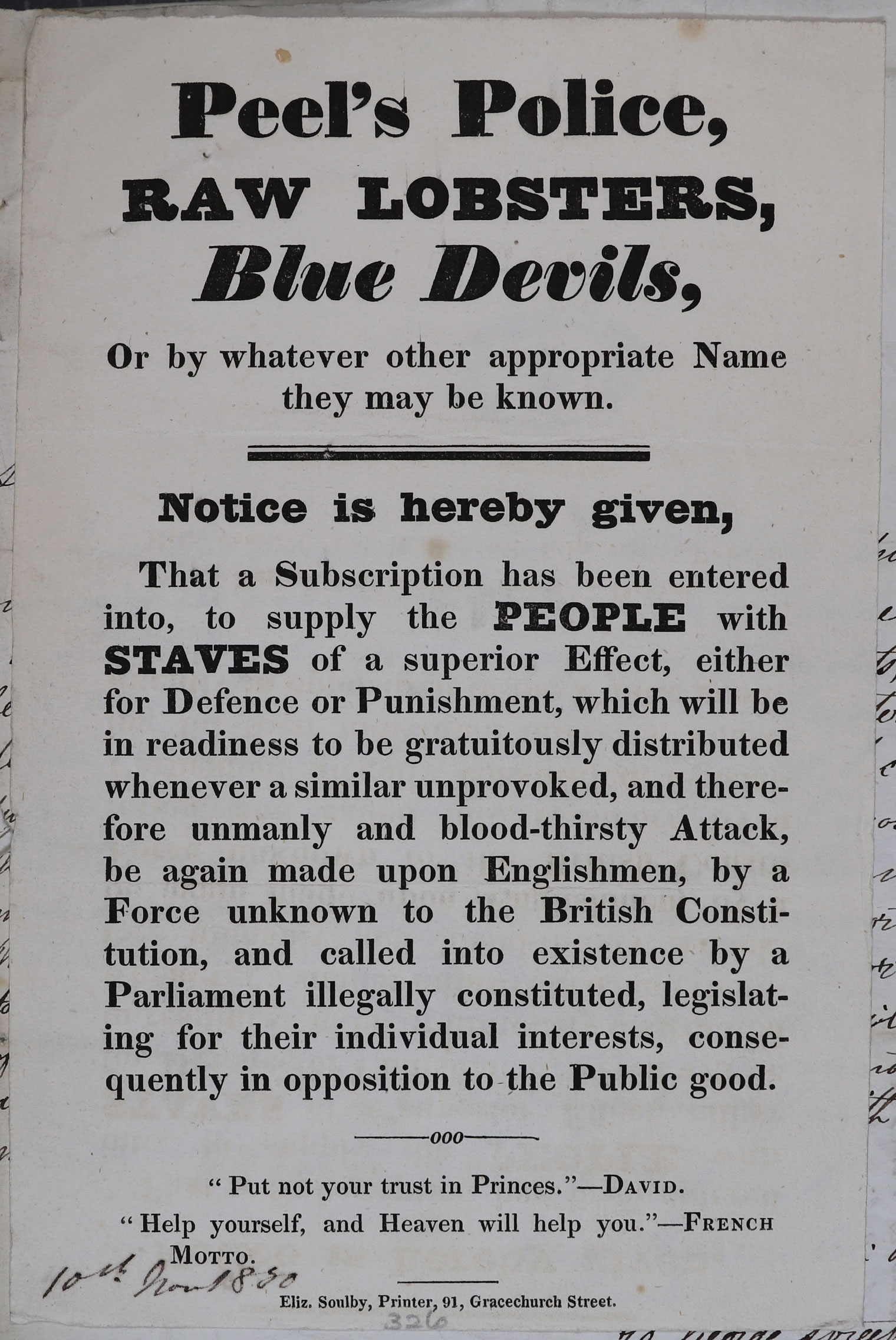
Anti-police handbill, 1830. Catalogue Ref: HO 44/21, f.326
This handbill was written a year after the establishment of the Metropolitan Police.
Lobsters are blue when raw, but when they are heated or exposed to volatile conditions, they turn red, the colour not of police uniforms, but of army uniforms.
Transcript
Peel’s Police
RAW LOBSTERS
Blue Devils,
Or by whatever appropriate Name they may be known.
Notice is thereby given,
That a Subscription has been entered into, to supply the PEOPLE with STAVES* of a superior Effect, either for Defence or Punishment, which will be in readiness to be gratuitously [freely] distributed whenever a similar unprovoked, and therefore unmanly and blood-thirsty Attack, be again made upon Englishmen, by a Force unknown to the British Constitution, and called into existence by a Parliament illegally constituted, legislating for the individual interests, consequently in opposition to the public good.
——————————————-
“Put not your trust in Princes”- DAVID.
“Help yourself, and Heaven will help you.” -FRENCH MOTTO
10th October 1830
Eliz. Soulby, Printer, 91 Gracechurch Street.
Glossary for starred* words, other word meanings given in brackets.
Staves- a wooden rod or truncheon.
- What can you infer about the writer’s attitudes towards the police from the handbill?
- How does the handbill writer describe police behaviour?
- The handbill refers to the police as ‘Raw Lobsters’ and ‘Blue Devils’. What is it trying to say by referring to the police in this way? [Clue: Use the document caption to help.]
- What attitude is inferred by the handbill towards the government and monarchy?
- How are the British people being encouraged to defend themselves?
- Explain why the quotations at the end of the handbill might have been included?
- Why do you think this handbill was produced and for whom?
